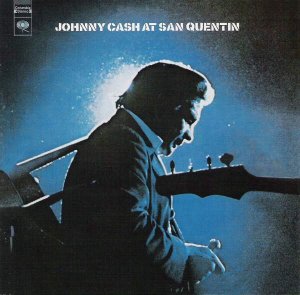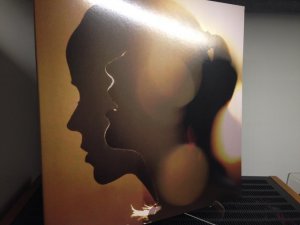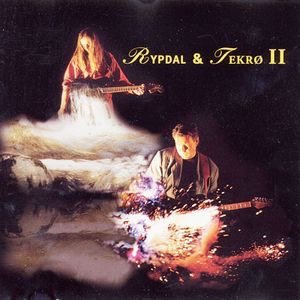Hva lytter du til idag (del 5)?
- Trådstarter Høvdingen
- Startdato
Diskusjonstråd Se tråd i gallerivisning
-
- Status
- Stengt for ytterligere svar.
Bad Company - Straight Shooter. Swan Song SS 8502-2. 1975(88)
Over til blues og rock.
Bad Company - Straight Shooter. Swan Song SS 8502-2. 1975(88)
Sterke minner for en hormonell ung-gutt knyttet til denne låtaRart den ikke har rettet seg ut, men det gjør den neppe for han gikk bort for en del år siden
Siden vi er på funk-sporet;
Maynard Ferguson spiller ulovlig høye toner på sin trumpet!America - Greatest Hits
Starter med denne i kveld:
Johnny Cash at San Quentin
Vedlegg
-
87.8 KB Visninger: 130
Spretter en glasscola og setter på Tina Dico - whispers på vinylVedlegg
-
42.5 KB Visninger: 105
For å opprettholde trådens image som blues/jazz tråd.
- Ble medlem
- 27.03.2007
- Innlegg
- 21.291
- Antall liker
- 31.091
- Sted
- Nede i fjæresteinene
- Torget vurderinger
- 2
Etter å ha sveipet innom Ketil for en lytt på disse,
...Har man oppdaget en ny plate på harddisken:
Bra greier. Bra lyd, både på høyttalere og på musikken.
mvhFleetwood Mac - Tango in the Night
Ikke den beste Mac plata, men det er det er en del gull her. Og den finner veien til platetallerkenen rett som det er.
Her spilles litt Stevie Ray Vaughan, ikke helt feil
Stevie Ray Vaughan – Texas Flood
http://wimp.no/track/545683
Setter på noe tyngre. Nemlig denne klassikeren.
Deep Purple - Machine Head
Den er nok kjent for de fleste. Og dette er hva Lester Banks mente da den kom ut.
I just don't understand, as Ann-Margret once sang, why an exciting band like Deep Purple, who consistently hit the top of the charts in Merrie Olde and have taken Europe by storm, remain a comparatively unknown quantity to American audiences. Especially when said audiences have wholeheartedly embraced bands with similar musical aims and not one more ampere of excitement.
It's a shame, but Deep Purple themselves are at least partially to blame. Their first two American albums on Tetragrammaton were mostly uninspired, despite some good cover versions of songs like "I'm So Glad" and "Hush." The basic problem seemed to be that the group hadn't really learned to write yet, so the covers were the best way to grow without losing the audience. Except that no self-respecting late-Sixties rock band wants to put out an album with nothing but covers on it, so we were left with a bunch of boring originals, half of them instrumental. When, that is, they weren't indulging in long "improvisational" forays such as their first album's bolero rendition of "Hey Joe." Jon Lord was the main culprit here, having a background of extensive formal keyboard training which tended to make his solos at least a bit Emersonic and at most positively pompous. The pretentious side of Deep Purple found its fullest expression in their first album for Warner's, Concerto For Group and Orchestra, written by Lord and performed with the aid of Malcolm Arnold and the "Royal Philharmonic Orchestra."
It was an atrocity. A "movement" would begin with a few minutes of "symphonic" mush, then abruptly the orchestra would stop and the band would start to play, build until you thought they were just about to really start cooking, and then — whoosh — drowned in string sections again. A recent Lord-Arnold collaboration on Capitol called Gemini Suite was just more of the same miscegenation.
Fortunately, the band has seemingly realized that that sort of thing can get out of hand, because their last three albums have finally found a comfortably furious groove for them to work in, making them prime contenders among the most searingly loud and heavy bands on both sides of the Atlantic. Deep Purple in Rock was a dynamic, frenzied piece of work sounding not a little like the MC5 (anybody who thinks that all heavy bands put out thudding slabs of "downer" music just hasn't gotten into Deep Purple). Fireball was more of the same, if not quite as frantically effective. Machine Head bears strong similarities to both its immediate predecessors, lying qualitatively somewhere in between the two.
And like both of them, though it delivers the Sound, the rushing, grating crunch of the hard attack, it has its ups and downs compositionally. "Highway Star" is a great opening track, quite similar both structurally and thematically to "Speed King" and "Fireball," the openers of the two previous albums. The pace is blistering, almost too fast for comfort, with lyrics that take the primeval cargirl equation and turn it into something as breathtakingly homicidal as Alice Cooper's "Under My Wheels": "Nobody gonna take my car/I'm gonna race it to the ground/Nobody gonna beat my car/It's gonna break the speed of sound/Oooh it's a killing machine/It's got everything ..."
"Space Truckin'" is just as good, a sci-fi boogie that's the perfect answer to all the Kantnerian pomposities and turns out to be the missing link between them and things like Wild Man Fischer's "Rocket Rock" (lyrically) and the Doors' "Hello I Love You" (musically). Once again the lyrics are ace, and never let it be said that Deep Purple don't have a sense of humor: "We had a lot of luck on Venus/We always have a ball on Mars/Meeting all the groovy people ... We'd move to the Canaveral moonstop/And everyone would dance and sway/We got music in our solar system/We're space truckin' round the stars."
In between those two Deep Purple classics lies nothing but good, hard, socking music, although some of the lyrics may leave a bit to be desired. It says on the liner that "This album was written and recorded in Montreux, Switzerland, between 6th and 21st December, 1971," and much of it sounds like it was conceived on the fly, what with deathless lines like "You're lazy you just stay in bed/You don't want no money/You don't want no bread." There's even trials getting Machine Head recorded: it seemed that some local arsonist burned down the best recording studio in town but luckily the Rolling Stones' mobile unit was on hand to get the new D. Purple out on schedule.
Frankly, I am not offended at all by the offhand nature of those songs. Rather than either condemn or apologize for their triteness, I will merely refer you to the current issue of Who Put the Bomp magazine, where Mark Shipper makes note of the fact that Sky Saxon wrote "Pushin' Too Hard" for the Seeds in ten minutes while waiting for his girl to get out of a supermarket — and comments that he'd rather not publish a review of any album that contains a song that took longer than ten minutes to write.
Now, I can't be that much of a purist, because I'm sure that "Highway Star" and "Space Truckin'" took at least 20 minutes each to compose, but I do know that this very banality is half the fun of rock 'n' roll. And I am confident that I will love the next five Deep Purple albums madly so long as they sound exactly like these last three.
Nå spilles denne cd'en:
Et vellykket samarbeid mellom 2 dyktige norske musikere.
Vedlegg
-
30.3 KB Visninger: 111
Setter på enda en klassiker. Mitt eksemplar stammer fra den glimrende ABKCO boksen som kom ut for noen år siden.
Rolling Stones - Beggars Banquet
- Status
- Stengt for ytterligere svar.
-
Laster inn…
Diskusjonstråd Se tråd i gallerivisning
-
-
Laster inn…







